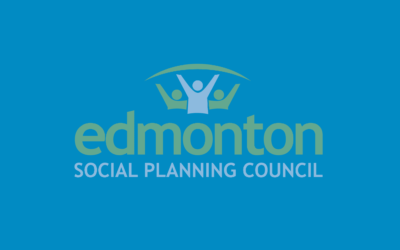fACTivist Feature Article: School Resource Officers and the School-to-Prison Pipeline

Note: this is excerpted from the Fall 2020 edition of our fACTivist publication. The Edmonton Social Planning Council, in collaboration with volunteers and colleagues within the sector, strives to provide stakeholders and community members with updates on ESPC’s activities and projects, including articles and initiatives that address a variety of pertinent issues that affect our community.
Written by Sydney Sheloff
The school-to-prison pipeline is a set of policies and practices that push youth marginalized by class and race oppressions away from education and towards the criminal justice system (Mallet, 2015). This is a complicated system with many interrelated elements, including harsh disciplinary techniques, student streaming, alongside racism and discrimination. However, given the current debate on removing School Resource Officers (SRO) from Edmonton schools, the focus will be on how disciplinary techniques, especially those that involve SROs, contribute to this system.
SROs are police officers who work within K–12 schools. They are tasked with the responsibility to ensure school safety, collaborate with community organizations to support youth, educate youth about issues related to crime, and divert youth from the criminal justice system (Edmonton Police Service, 2019). However, the way that they actually operate in schools has been called into question. The debate to remove SROs is part of the growing conversation around Black Lives Matter and police brutality. Many argue that SROs extend police involvement, discrimination, and brutality into the lives of BIPOC youth and children, which brings them into—and keeps them entrenched in—the criminal justice system.
The Edmonton Police Service (EPS) claims that SROs divert youth away from the criminal justice system (2019), but SROs are themselves a part of the criminal justice system. Youth may not be going to court, but they are regularly watched, judged, and disciplined by police officers. SROs are arguably introducing more criminal justice involvement into the lives of students, as misbehaviours that would have previously been addressed by school authorities, such as principles or teachers, are now being addressed by police, and can possibly result in a criminal charge (Bernard & Smith, 2018). Police-Free Schools Winnipeg (2020) shared several stories from teachers who were encouraged to bring in SROs to deal with minor behavioural issues. These situations increase the odds for certain students to interact with police and can establish conditions for youth to enter the criminal justice system.
Abela and DonLevy (2020) explain that SROs are often not given specialized training to work in schools or with youth—they rely on basic police training. Illustrating this point, some students in Edmonton have claimed that officers at their schools view students as potential threats and criminals rather than as young students (CBC News, 2020). Local activist Bashir Mohammed found evidence that Edmonton SROs were setting up “bait phones” with tracking devices in an attempt to entrap potential thieves. Students were supposed to learn about these phones through gossip to understand that officers were always on the lookout for crime (2020). The Toronto District School Board’s review of their School Resource Officer Program found that many students felt that they were being watched or targeted by SROs, which made them feel intimidated and uncomfortable going to school (2017). Police-Free Schools Winnipeg (2020) also collected several testimonials from students who stated that SROs harassed them and made them feel scared or uneasy. Thus, youth do not feel protected by police—they feel like suspects being watched.
Although SRO student arrests directly contribute to the school-to-prison pipeline, they are not the only issue. When students feel targeted, unsafe, scared, or harassed, they are less likely to attend school. Police-Free Schools Winnipeg (2020) shared stories of students who had skipped class because they felt too anxious around SROs, which made it harder for them to succeed. School completion influences future career opportunities and earning potential, so students who miss school are likely to face barriers in attaining gainful employment. This could keep these students in poverty—yet another factor that can lead to involvement with the criminal justice system.
In much the same way that BIPOC are disproportionally targeted by the police in public, BIPOC students are targeted by SROs in schools. Stereotypes that claim Black and Indigenous people are violent or dangerous may be just one way that SROs are led to perceive these students in negative ways. Students in Edmonton have claimed that SROs target Black, Brown, and Indigenous students (CBC News, 2020). Police-Free Schools Winnipeg (2020) also shared stories of students who believed BIPOC students were targeted by SROs. Unfortunately, there is no data on SRO interactions disaggregated by race, so there is no evidence that SROs are in fact disciplining BIPOC students at a higher rate. However, a study done on anti-Black racism within the Peel District School Board found that Black students were suspended at a disproportionate rate—Black students made up 10.2% of the school population but 22.5% of those suspended (2020).
SROs are also tasked with offering counselling and support to students (Edmonton Police Service, 2019), but these services would be much better performed by other professionals (Mallet, 2015). Youth who have trouble in school are not going to certified counsellors or mental health professionals to deal with their problems, they are going to police who have little to no training in this specific field (Abela & DonLevy, 2020). Furthermore, as illustrated above, many students, especially BIPOC and impoverished students, feel targeted by SROs and do not trust or feel safe around them, so it is unlikely that they would go to them for support.
Crime is often the result of interactions between systemic and personal issues such as mental health, racism, poverty, and victimization. Youth who experience these problems need support to overcome barriers and access opportunities for a better life. However, the SRO program, by hiring police officers instead of certified counsellors, does not give youth the support they need. Rather, SROs monitor, discipline, and may even criminally charge vulnerable and marginalized youth. Marginalized youth are not given support to succeed in school, but are instead pushed toward the criminal justice system.
There are studies on Canadian SRO programs that found the programs to be positive and useful, but these findings should be questioned. A study on the SRO program in the Peel District of Ontario found SROs were effective at preventing crime, improving student perceptions of police, and making students feel safer (Duxbury & Bennell, 2018). However, this study paid no attention to how different groups of students experienced SROs in different ways. A study on the Peel District School Board two years later found wide-spread anti-Black racism within the school district by teachers and administrators, and shared some evidence of SROs discriminating against Black students (Chadha, Herbert, & Richard, 2020), calling into question the results of the first study.
A separate study of the SRO program in the Winnipeg schools district also found students had positive perceptions of SROs, and that SROs were useful in a school setting (Kaplan Research Associates, 2014). However, according to Police Free Schools Winnipeg (2020), “policing discriminates against a minority of students on the basis of race and class. The positive opinion of a majority, who themselves have little or no interaction with the police, is irrelevant to assessing the harm caused by police presence.” Both the Peel District and Winnipeg studies asked students who had little interaction with police what their perceptions were, which resulted in positive results. But these results are irrelevant to the issues. Marginalized students are the ones who are the most affected by SROs—the ones who claim the greatest harm by SROs—and yet they were not consulted.
Those in power, such as governments, school board officials, and the EPS, have depicted the SRO program as a benefit to schools and students. However, since its inception in 1979, the program has never been formally reviewed (CBC, 2020). Going forward it is important that we look past these idealistic portrayals, engage in rigorous research, and listen to the perspectives of those who are actually impacted by these programs.
Sources
Abela, G. & Donlevy, J. K. (2020). Violence in Alberta’s schools: The perspectives of school resource officers. Education and Law Journal 29(2), 1-26.
Bernard, W. T. & Smith, H. (2018). Injustice, justice, and africentric practice in Canada. Canadian Social Work Review 35(1), 149-157. DOI: 10.7202/1051108ar
CBC News (2020, June 24). Motion to remove police resource officers from schools narrowly defeated. CBC. https://www.cbc.ca/news/canada/edmonton/edmonton-public-school-resource-officers-suspension-review-1.5624966
Chadha, E., Herbert, S., & Richard, S. (2020). Review of the Peel District School Board. http://www.edu.gov.on.ca/eng/new/review-peel-district-school-board-report-en.pdf
Duxbury, L., & Bennell, C. (2018). Review and Summary: Assigning Value to Peel Regional Police’s school Resource Officer Program. Carleton University. https://www.peelpoliceboard.ca/en/board-meetings/resources/Presentations/Dr.-Duxbury-Presentation—Assigning-Value-To-Peel-Regional-Polices-School-Resource-Officer-Program.pdf
Edmonton Police Service (2019). School Resource Officers. https://www.edmontonpolice.ca/CommunityPolicing/FamilyProtection/SchoolResourceOfficers
Kaplan Research Associates (2014). An evaluation of the school resource officer program of the Winnipeg school division: 2012-2014. Kaplan Research Associates Inc.
Mallet, C. (2015). The school-to-prison pipeline: A critical review of the punitive paradigm shift. Child & Adolescent Social Work Journal 33(1), 15-24. DOI: 10.1007/s10560-015-0397-1
Mohamed, B. (2020, June 2). Edmonton Anti-Racism Toolkit. https://www.bashirmohamed.com/blog/2020/6/2/edmontontoolkit
Police-Free School Winnipeg (2020). Stories. Police Free Schools Winnipeg. https://policefreeschoolswpg.ca/stories/
Sydney Sheloff is the Research Officer for the Edmonton Social Planning Council.


